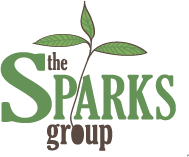Seeing and Working With Limiting Mindsets and Behaviors
Limiting beliefs can get in the way of desired results and outcomes. Here’s how to see them, understand them, and address them.
Key Takeaways:
- It is possible to change limiting mindsets by focusing on beliefs and emotions, in addition to behaviors
- Three ways to address limiting beliefs:
- Unmaking and remaking beliefs
- Recognizing that a belief doesn’t serve us
- Confronting immunity to change
Pursuing and accomplishing a change of mindset is a challenge for most people. We are often so tightly identified with our own worldview that we can fail to see when an aspect of it is no longer serving us. But it is possible to remake our beliefs to experience more joy and ease, both in life and at work.
This post will explore what limiting beliefs are, where they fit into vertical development, and four different approaches for changing limiting mindsets.
Can limiting mindsets be altered?
We may not be able to fully understand our beliefs or articulate them, as they’re so ingrained in us. We instead look at our behaviors, which we can see and evaluate. But behavior is driven by internal thinking and feeling, including our beliefs. If we only deal with behavior, we’re not dealing with the “operating system” of beliefs that drives that behavior.
A belief is where the lever is for change to occur. If someone can think and feel differently about something, they can act differently.
In coaching, the goal is to expand our perspectives by identifying our beliefs, examining them, and evolving them. From this place of expanded perspective, a person then has more choices for action.
Though many of us view our beliefs as fixed and unchanging, vertical development is based on the premise that our beliefs and worldview grow and expand, and that this is how we “grow up” or mature. This involves working with those beliefs to evolve and modify them. It’s not necessarily fast or easy, but it is possible.
The field of vertical development is based on evolving beliefs. As we grow, our beliefs and mindsets grow with us. We can start to reframe stories we’ve told ourselves, and we think about our identity through different lenses. This increased capacity helps us navigate increasingly complex situations and can help us make big life decisions, like leaving a job, in a way that is more authentic and aligned with our values.
Limiting beliefs in vertical development
Each stage of vertical development has aspects that can be limiting when the environment presents a level of complexity that is in excess of what that stage can adequately address. As someone grows, their beliefs become limited, so they move on to the next stage.
A great example is the Expert stage, which is where a lot of the population sits. Experts are highly identified with what they know, but that mindset becomes limiting when they can’t possibly be the best source of information for everything they might need to create the best outcome. Their effectiveness increases when they realize they will get better results when they can draw on the expertise of others and begin to collaborate to maximize the outcome.
Additionally, the Achiever is so motivated and hard-working that it can eventually become too much, putting them at risk for burnout. This stage is all about being efficient and effective. At first, this work hard and work fast approach can work very well, and it feels good. But when they reach that limiting place of burnout, they actually become less effective. This limits their ability to see the results they want. Then, they can finally start to expand their thinking and recognize the benefits of a better work-life balance.
Because each stage of vertical development solves for the pain points of the last, the framework is about evolving our mindset to become leaders with increased capacity who can see and handle greater complexity.
3 ways to challenge limiting beliefs
There are many approaches to addressing limiting beliefs and helping people to expand their mindsets. Let’s walk through three ways to do it:
1. Identifying, unpacking, and remaking beliefs
It’s common in coaching to unpack all the beliefs we’ve held for so long and examine them. This starts with figuring out what they are – often we are unaware of our beliefs because we are so tightly identified with them. Why do we have them? Where did they come from? What do they really mean for our lives now? Coaches will encourage people to evolve or reframe mindsets they find to be limiting.
2. Directly experiencing the limitation of a belief
Sometimes an experience pushes us to change a belief. This is how vertical development happens. Mindsets get remade through a situation where we realize we’re in over our heads. We figure out that our current way of looking at the world is insufficient for what we’re trying to accomplish. We’re essentially forced to unmake our beliefs and remake them to suit the new situation in which we find ourselves.
3. Addressing immunity to change
One approach to address challenges is a model called immunity to change. Immunity to change happens when we want to change something about ourselves, like losing 10 pounds, for example. Still, there’s some other belief there that is competing, like being committed to enjoying eating at restaurants. A person may be very committed to losing weight, but that competing commitment to dining out is strong, too.
Another example is someone who needs to take heart medication but doesn’t. They’re very committed to staying alive, but they’re also committed to a belief that they’re young and healthy and don’t need medication. In both of these examples, beliefs are in conflict. The immunity to change model offers a way to identify various beliefs and how they interact with each, which can be a powerful and effective way to promote growth.
Addressing and challenging beliefs that are limiting and static is essential for growth and development. These three approaches allow for a close, critical examination and adjustment of those limiting beliefs.
Why work with a coach?
For us to maximize our growth as people and leaders, we need to ensure we’re working at the belief level, not the behavior level. Working with a coach is a great way to do this. Through coaching, we can unpack our own beliefs and context individually while having an open dialogue with a coach to push us along.
At The Sparks Group, we coach clients along the vertical development framework to encourage leadership that can take on more capacity in an increasingly complex world. Learn more about our coaching services by contacting us today to schedule a free 30-minute discovery call.

